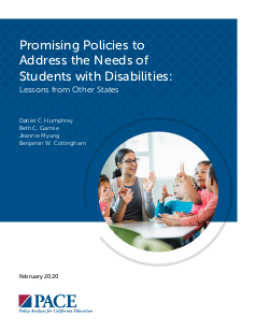Summary
This article provides 10 recommendations based on the PACE report to help educators and district leaders provide high-quality instruction through distance and blended learning models in the 2020-21 school year. Despite the challenges of COVID-19, research can guide decisions about student learning and engagement. These recommendations can be used as a framework to prioritize quality instruction.
Summary
Summary
In the run-up to 2020 elections, where do California voters stand on key education policy issues? This report examines findings and trends from the 2020 PACE/USC Rossier poll. Key findings include rising pessimism about California education and elected officials, continued concern about gun violence in schools and college affordability, and negative opinions about higher education. However, there is substantial support for increased spending, especially on teacher salaries.
Summary
Summary
Summary
California and the US are undergoing a cultural shift in school accountability policies towards locally-determined measures of school performance. Lessons can be learned from the CORE districts, which developed an innovative accountability system, emphasizing support over sanctions, and utilizing multiple measures of school quality. The CORE districts' measurement system and collaboration hold promise for improving local systems, but efforts to build capacity remain a work in progress.





